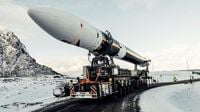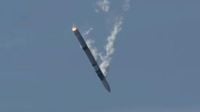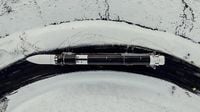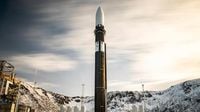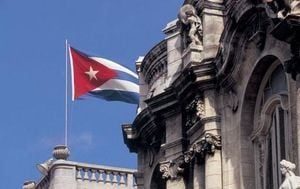In a significant milestone for European space exploration, the "Spectrum" rocket from Isar Aerospace crashed shortly after its launch from the Andøya spaceport in Norway on March 30, 2025. This test flight, which lasted approximately 30 seconds, was not only the first for the Bavarian startup but also marked the inaugural launch of an orbital carrier rocket from continental Europe.
The launch took place at 12:30 PM local time, after several postponements due to adverse weather conditions. Although the flight ended in failure, Isar Aerospace's CEO Daniel Metzler described the mission as a "great success". He emphasized that the primary goal was to gather valuable data and experience, which was achieved despite the rocket's crash into the sea shortly after takeoff. "We had a clean start, a flight time of 30 seconds, and we were able to validate our flight termination system," Metzler stated.
The two-stage "Spectrum" rocket, measuring 28 meters in length and two meters in diameter, is designed to transport small to medium-sized satellites into orbit. It can carry a payload of between 700 to 1,000 kilograms, depending on the orbital destination. This capability positions it as a competitive option in the growing market of satellite launches, particularly against established players like SpaceX and their Falcon 9 rocket, which is significantly larger and can transport over 22 tons.
Experts had anticipated that the rocket would not reach orbit, as it is rare for any company to achieve this feat on their first attempt. A spokesperson for Isar Aerospace had previously indicated that the likelihood of reaching orbit was low, stating, "The rocket may explode, which is even likely within the testing phase. Thirty seconds would already be a big success." Despite the crash, the event is seen as a critical step forward for the European space sector.
Marie-Christine von Hahn, the CEO of the German Aerospace Industries Association, hailed the mission as a groundbreaking advancement for German spaceflight, noting that it provided substantial data for future projects. She emphasized the need for robust funding to ensure Europe’s competitive edge in space exploration, calling for 500 million euros for the national space program and 6 billion euros for the European Space Agency (ESA).
Anna Christmann, the German government's space coordinator, echoed this sentiment, declaring, "Today marks the beginning of a new era in European space exploration." She highlighted the importance of the successful test launch of the "Spectrum" in establishing a more independent and sovereign European access to space.
The launch site at Andøya, located north of the Arctic Circle, has previously been used for suborbital missions, primarily for research purposes. However, the "Spectrum" launch represents a significant shift, being the first orbital rocket launch funded almost entirely through private means.
Following the crash, Isar Aerospace confirmed that strict safety protocols ensured the safety of all personnel involved in the launch, with no injuries or property damage reported. The Norwegian spaceport activated a crisis response system following the incident, which was classified as a "situation" rather than a disaster.
Despite the setback, Isar Aerospace is already preparing for future launches, with plans for two additional rockets currently in development. Metzler remarked on the geopolitical significance of the launch, stating, "This is much more than just a rocket launch. The space is one of the crucial areas for our security, resilience, and technological advancement."
The "Spectrum" rocket's design places it among the class of microlaunchers, which are becoming increasingly vital as the demand for satellite deployment grows. The company aims to provide a reliable and efficient means of launching smaller satellites, which are essential for various applications, including telecommunications, Earth observation, and scientific research.
As Europe faces increasing competition in the space sector, particularly from the United States and China, the successful development of the "Spectrum" and similar projects will be crucial in establishing an independent European presence in space. The need for autonomy in space capabilities has never been more pressing, especially in light of the current geopolitical landscape.
In summary, while the crash of the "Spectrum" rocket is a setback, it serves as a learning opportunity and a stepping stone towards future successes in European space exploration. The data collected during this test flight will inform subsequent missions, helping to refine the technology and processes necessary for successful orbital launches.
